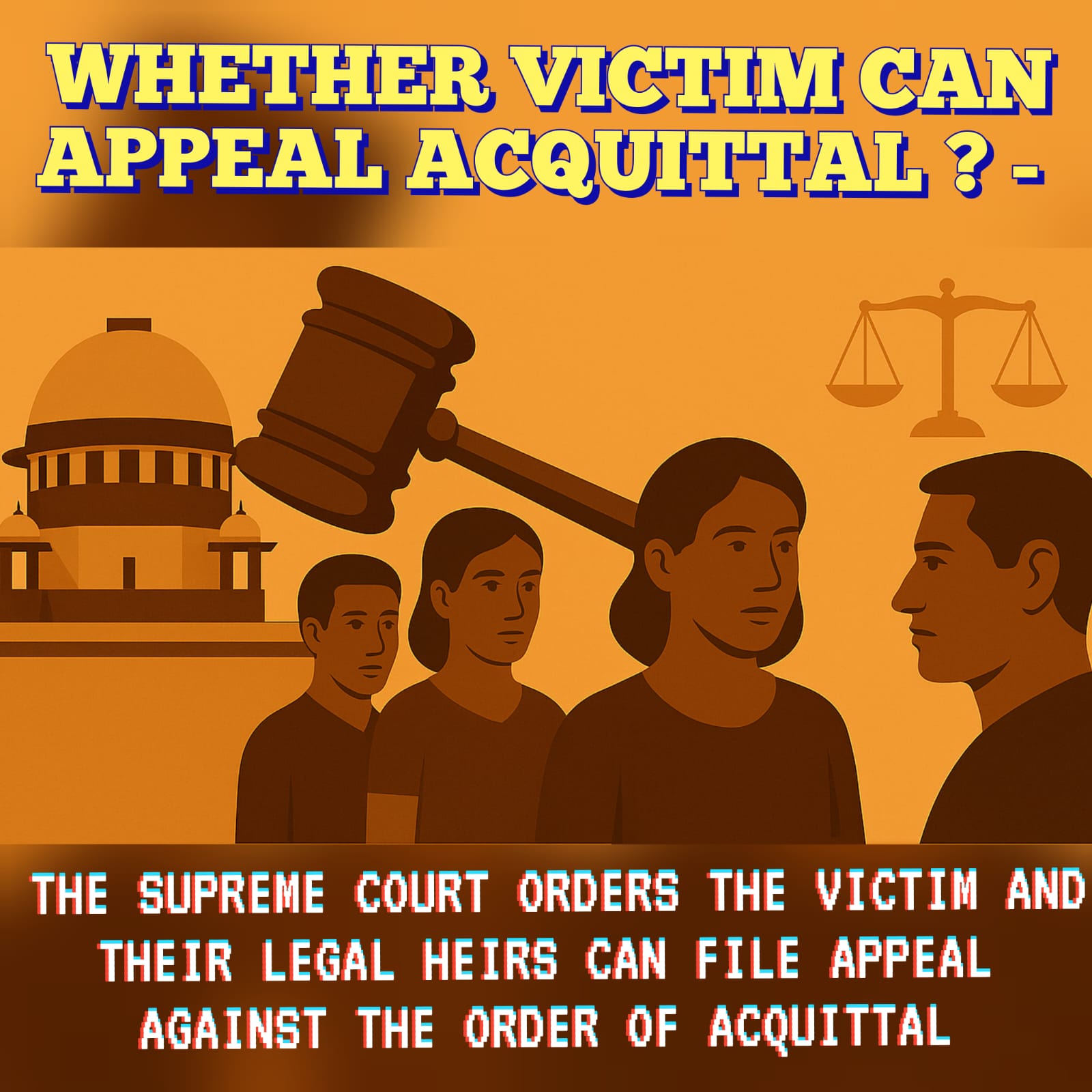INTRODUCTION
The Supreme Court made a path breaking- decision on the victim’s rights to appeal against order of acquittal. The Supreme Court affirmed that if the victim dies during an appeal, the legal heirs of the victim can step into their place and continue to be in the part of proceedings.
BACKGROUND OF THE CASE
This judgment arose from the case Khem Singh (Deceased ) through Legal Heirs V State of Uttaranchal. In this case during the year 1992 Khem Singh and his brother were attacked by a group of people and later brother died. Khem Singh filed a case and sessions court convicted the accused but later the High Court of Uttarakhand acquitted the accused. Khem Singh filed an appeal against this order in the supreme court of India. During the proceedings he died and his son took up the case.
ARGUMENTS OF THE PARTIES
The Appellant was the son of the deceased Khem Singh, he argued that according to Section 372 victims can approach court to file appeal against any acquittal order and also it covers the legal heirs under Section 2(wa). Since the State doesn’t approach court for filing any appeal regarding acquittal, the legal heirs should be allowed to file appeal. They also mentioned the case P. S. R. Sadhanantham v. State of Arunachalam, in that case it showed that the close relatives can also approach the court representing the victim.
The counsel for the accused argued that according to Section 394(2)(CrPC) the appeal filed by the victim ends when the victim dies. The law allowing relatives to continue appeals applies only to the accused persons, not the victims.
JUDGE’S POINT OF VIEW
When the case came before the Supreme Court of India the landmark judgment was pronounced by a bench of Justices B.V. Nagarathna and K.V. Viswanathan and they empowered the rights of the victims by granting them equal rights as the accused in terms of legal status. The bench also noted that according to Section 374 CrPC the accused has the right to file an appeal on the other side the victim should also have the same right.The Court also on pointed out that the victim can file appeal against any order of acquittal, if the punishment is less or any compensation is too low, as allowed under Section 372 CrPC. According to the Court’s point of view the Section 2(wa) of CrPC that defines “victim” not limited to the person who directly harmed it.
DECISION OF THE COURT
The bench of the Supreme Court that includes Justices B.V. Nagarathna and K.V. Viswanathan pronounced the judgment that they set aside the acquittal order of the Uttarakhand High Court. Also sent the case back for fresh hearing. Both the State and the victim’s heir can present their arguments before the court. Meanwhile the Court also mentioned that the case must be ended quickly as the case started in the year 1992. The accused must present before District Court Haridwar and submit a fresh bond of 15000 rupees and two sureties.
CONCLUSION
The above verdict is a landmark shift in the Indian Criminal Justice System. It gives victims a freedom to participate in the case proceedings rather than making them passive observers. It also brings balance between the rights of accused and victims.
AUTHOR DETAILS:
Aswathy S Menon, a law graduate from Mar Gregorios College of Law, Thiruvananthapuram, and Practicing as a lawyer at High Court of Kerala with over two years of experience in litigation, compliance, and legal research. She has contributed to legal content writing and worked on civil, criminal, and corporate matters, with particular interests in corporate governance, contract law, and dispute resolution.

